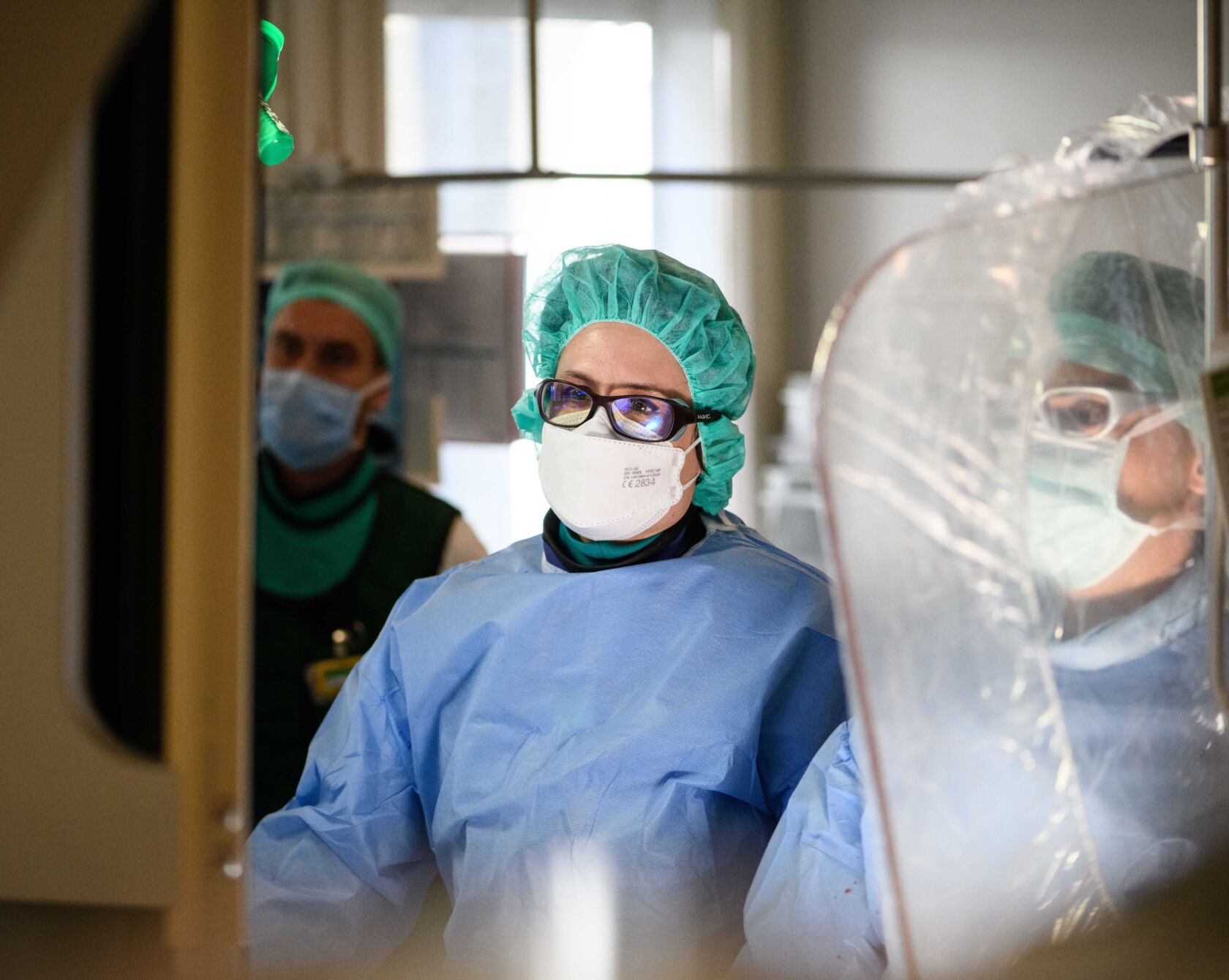After a heart attack it might be worth it to already treat constrictions in blood vessels not involved in the heart attack right away during the first intervention to treat the heart attack. In a large international study, USZ cardiologists were able to show that this treatment strategy has advantages over a delayed procedure. The result is highly relevant to clinical practice.
A heart attack is caused by the acute blockage of a coronary artery. The affected blood vessels are reopened with an immediate minimally invasive intervention is used to supply blood to the cardiac muscles again. Half of these patients also have additional blood vessels not involved in the heart attack that are constricted by plaques. These patients have a higher risk of future cardiovascular events. Studies have also shown that further heart attacks and re-intervention can be prevented by treating constrictions in the vessels not involved in the heart attack instead of generally treating the blood vessel that caused the heart attack. The ideal time to treat these constrictions in the vessels not involved in the heart attack had been unclear previously.
Immediate or delayed treatment?
In their study, the researchers led by Barbara Stähli, Senior Attending Physician at the Clinic for Cardiology of the University Hospital Zurich (USZ), investigated whether the treatment of constrictions in blood vessels not involved in heart attacks immediately after the re-opening of the vessel causing the heart attack is not inferior to an elective treatment in a secondary procedure. A total of 840 patients with heart attacks and multi-vessel coronary artery disease were studied in the trial at 37 hospitals throughout Europe. The patients were randomly assigned to two groups: In one group, the treatment of the constrictions in blood vessels not involved in heart attacks were treated immediately, and in the other group in a planned second procedure 19 to 45 days later. The study analyzed whether one of the following events occurred after one year: death, another heart attack, stroke, another unplanned ischemia-related intervention or hospitalization due to heart failure.
Significantly fewer heart attacks
The study showed that this was the case in 35 patients (8.5%) in the group that was immediately treated, and in 68 patients (16.3%) in the group in which a delayed treatment was performed. Two results were especially notable: Only eight patients (2%) from the first group suffered another heart attack, whereas 22 (5.3%) did in the second group. Another unplanned ischemia-related intervention was necessary in 17 patients (4.1%) from the first group, and in 39 (9.3%) from the second group. No difference was observed between the two groups in terms of the number of deaths or the number of strokes and hospitalizations due to heart failure. For Barbara Stähli, this was an impressive result: “For the first time, we were able to show that the immediate treatment of all coronary arteries lowers the risk of later heart attacks and also the need for re-intervention.”
Consequences for clinical practice
These study results are highly relevant for clinical practice because they show that an immediate intervention does not have any disadvantages for the patients. On the contrary: A strategy of immediate treatment leads to a lower rate of repeat heart attacks and new, unplanned interventions, and at the same time the patient is spared a second planned procedure and re-hospitalization. The study is ultimately of financial interest as well. The study and its consequences for professional recommendations were widely discussed this past weekend at the European Society of Cardiology (ESC).
You can find the study here
The study was initiated by Willibald Maier in 2016 and led by him until his death in 2020.

